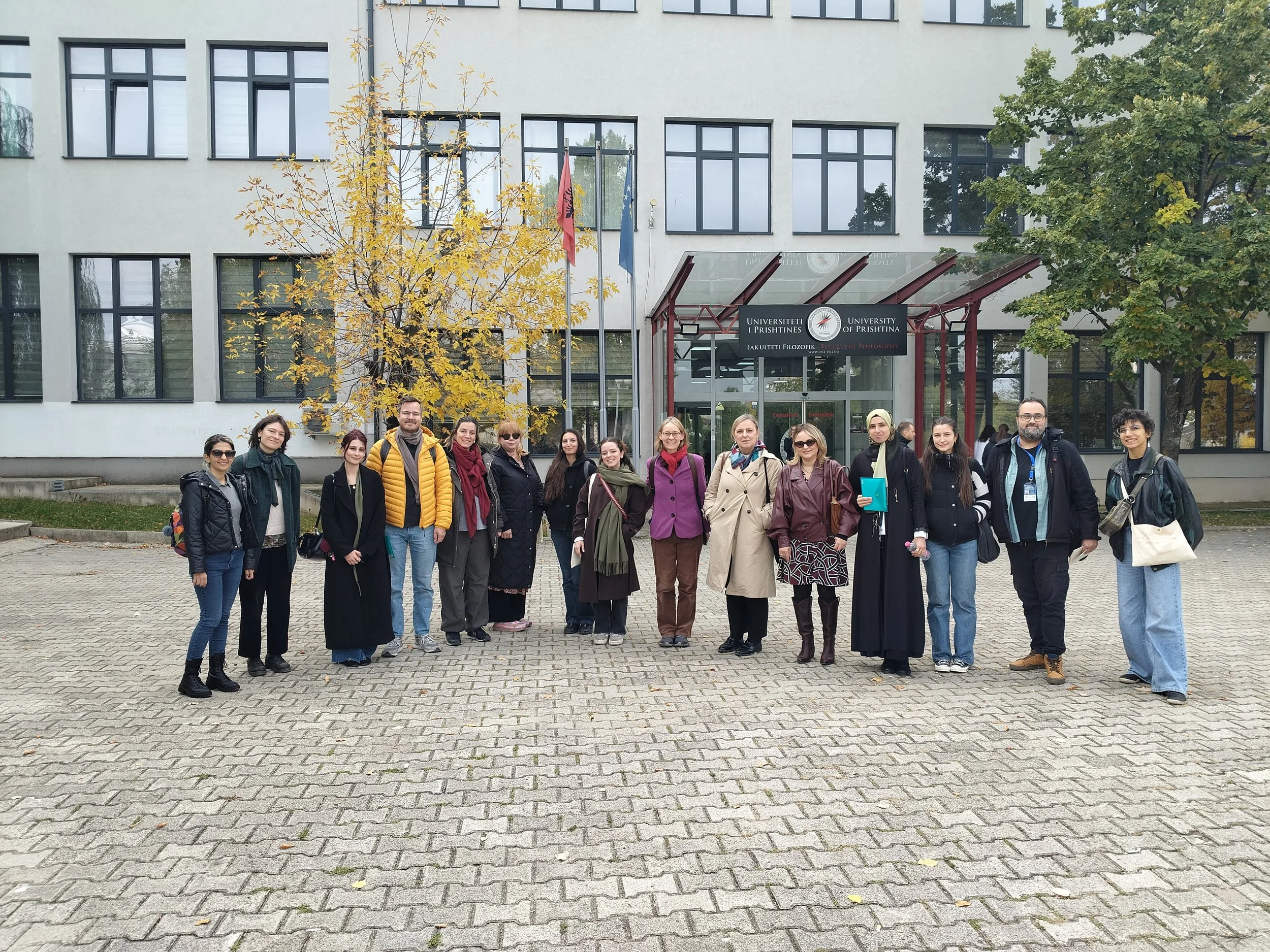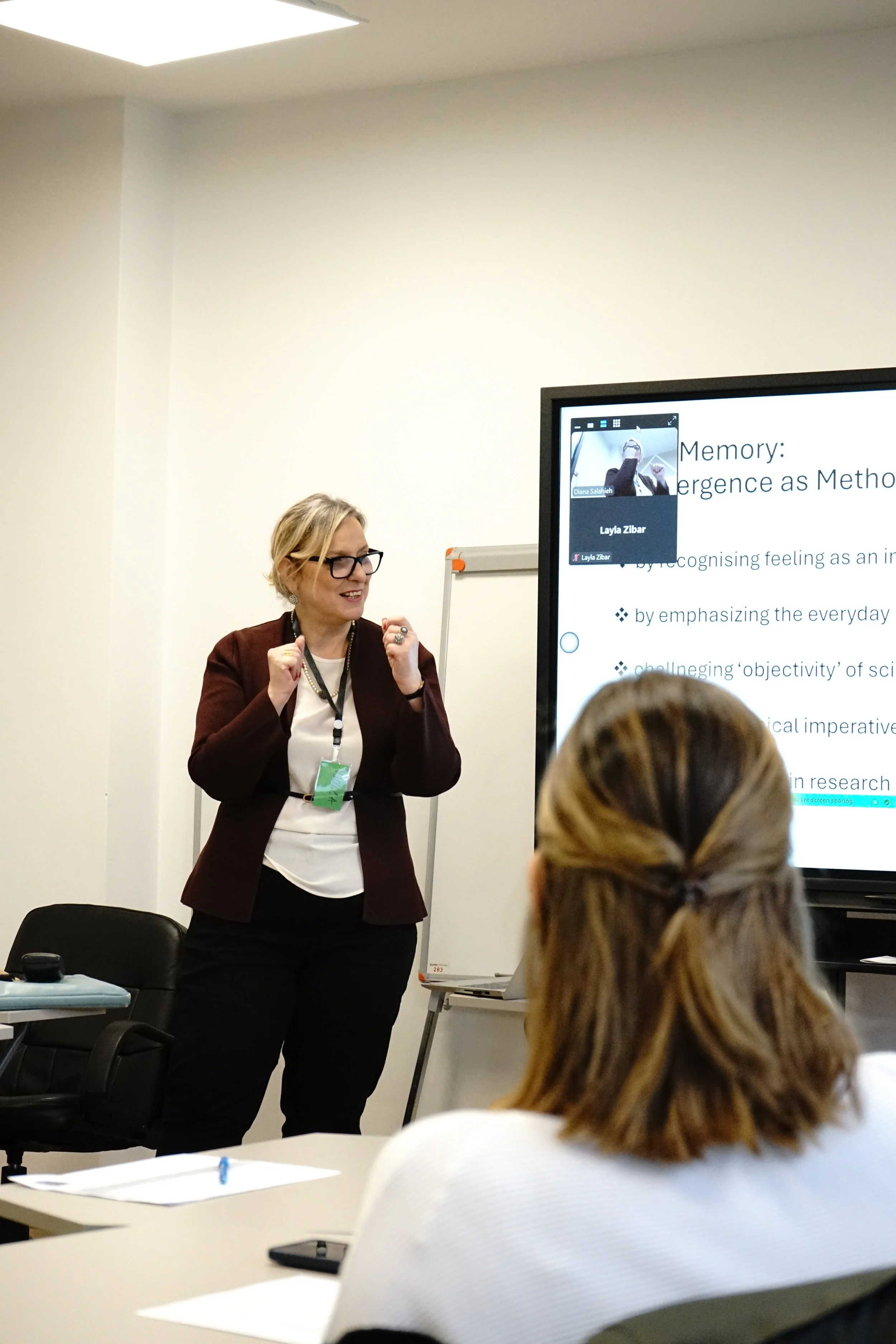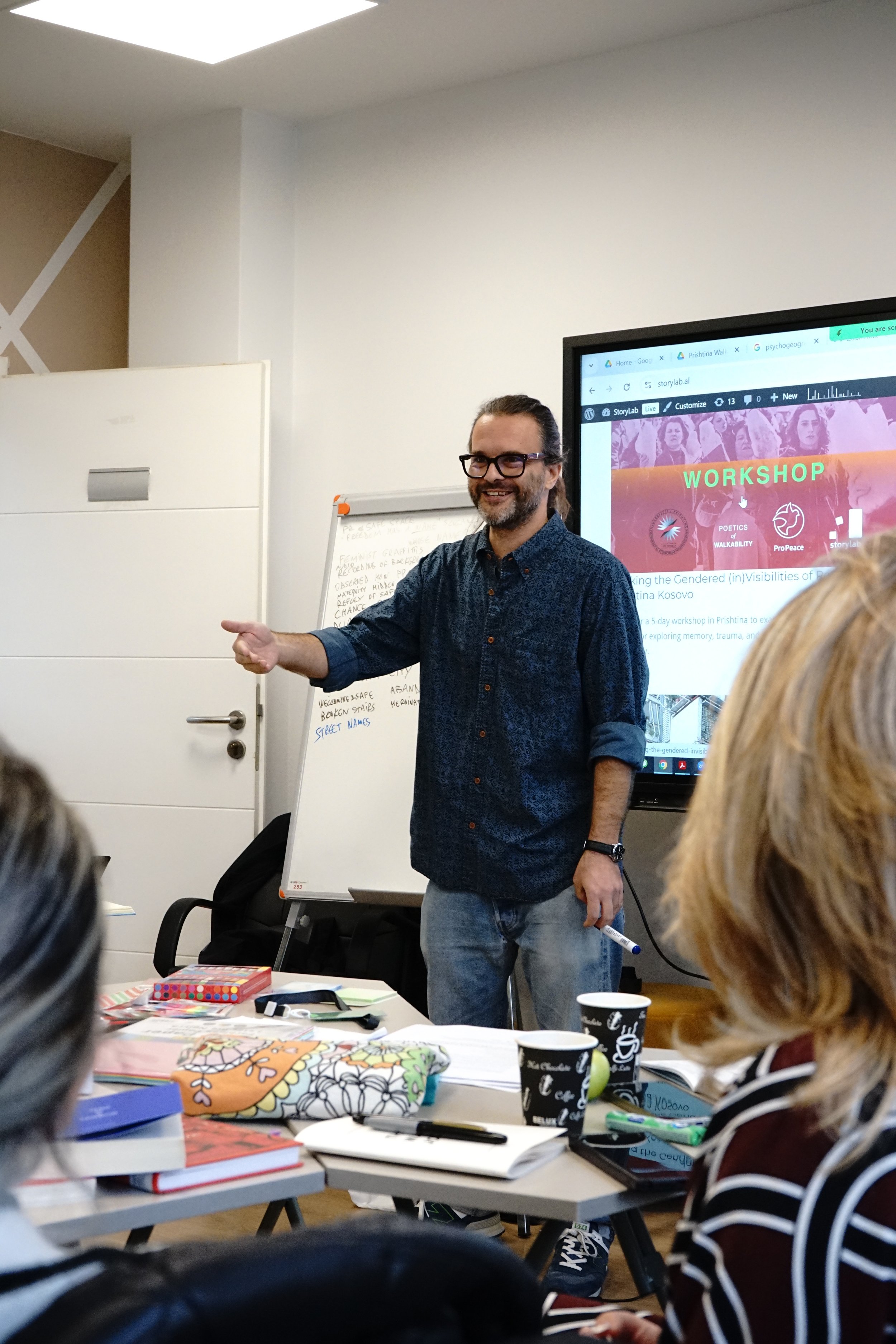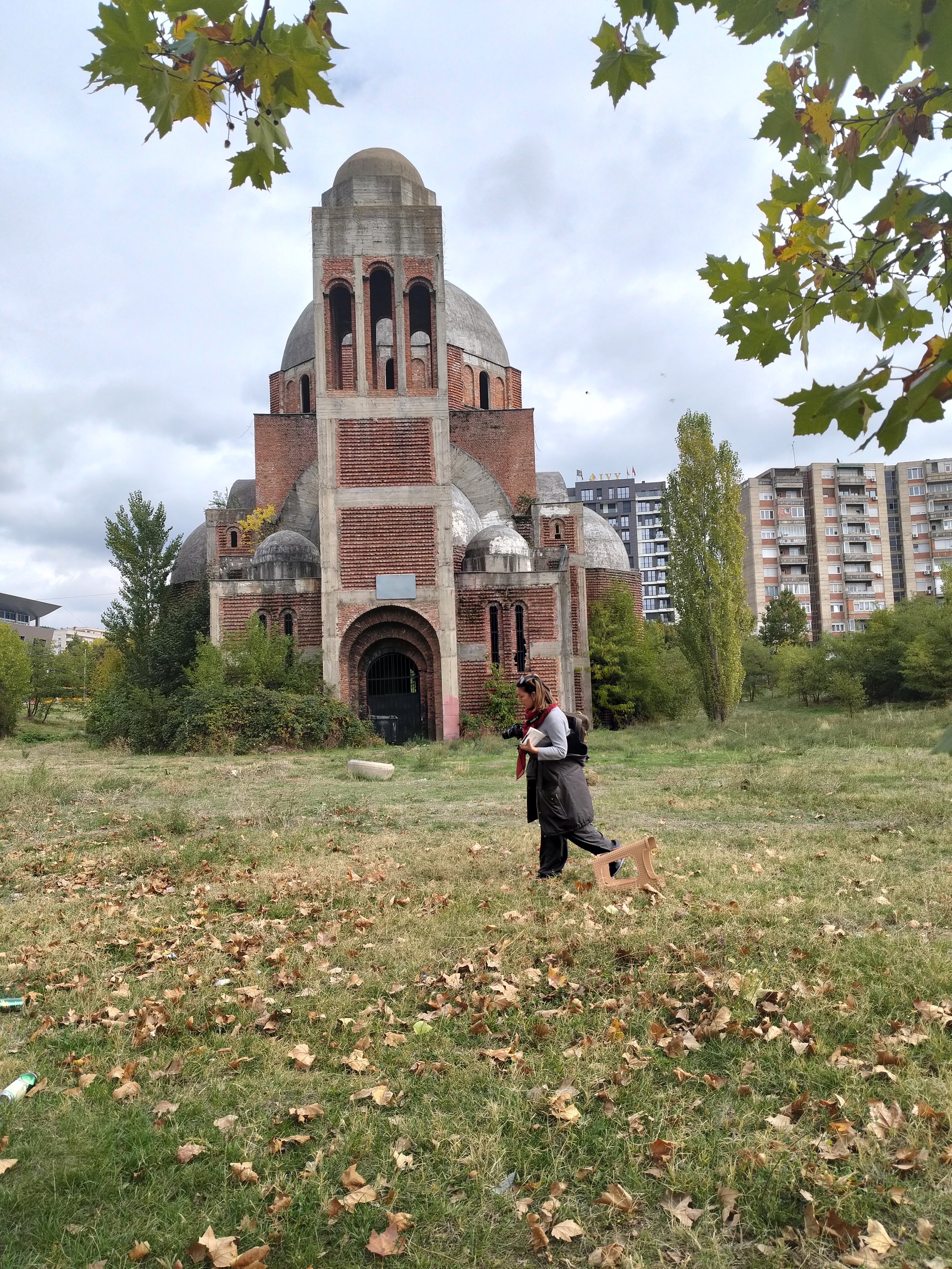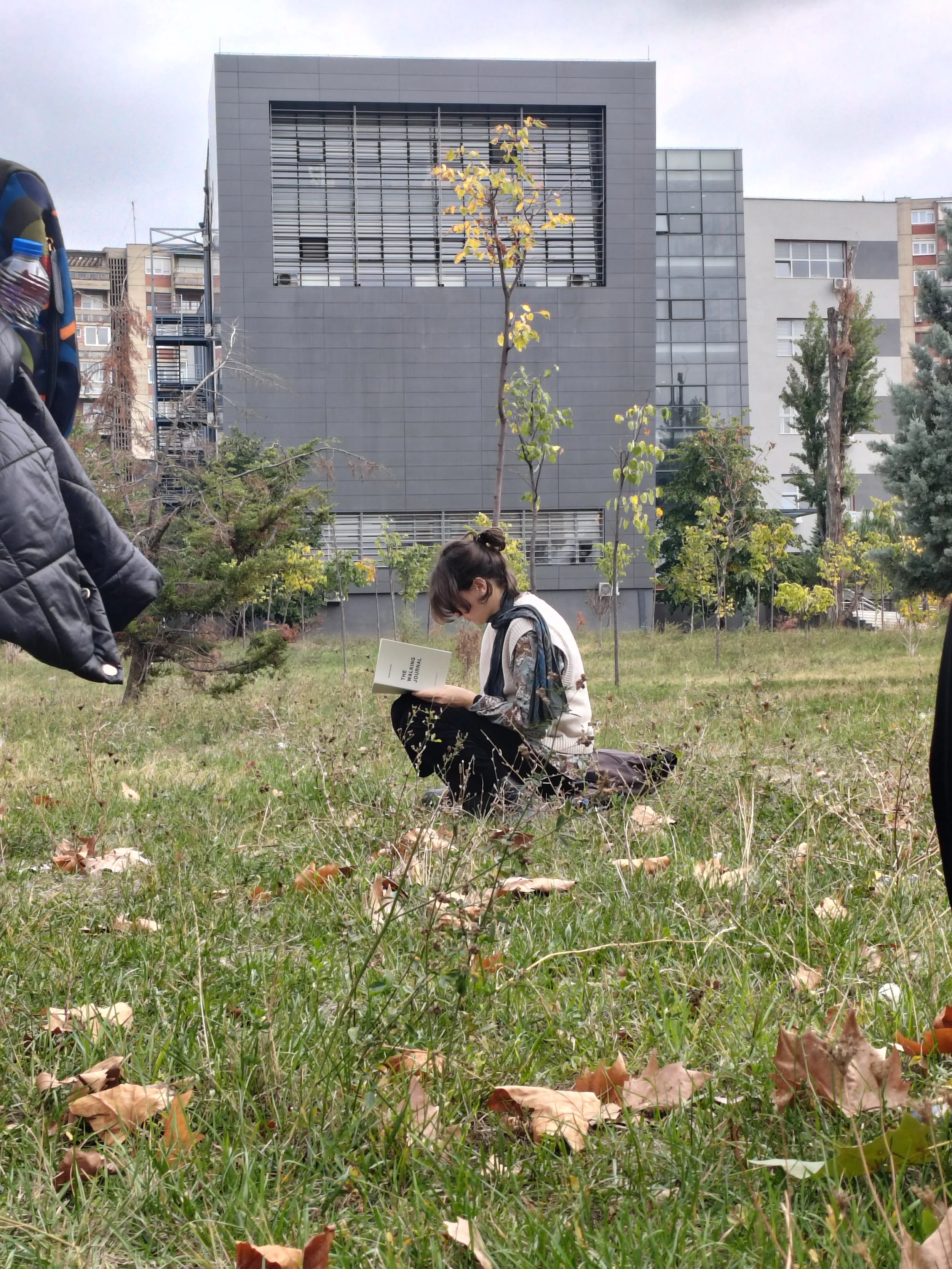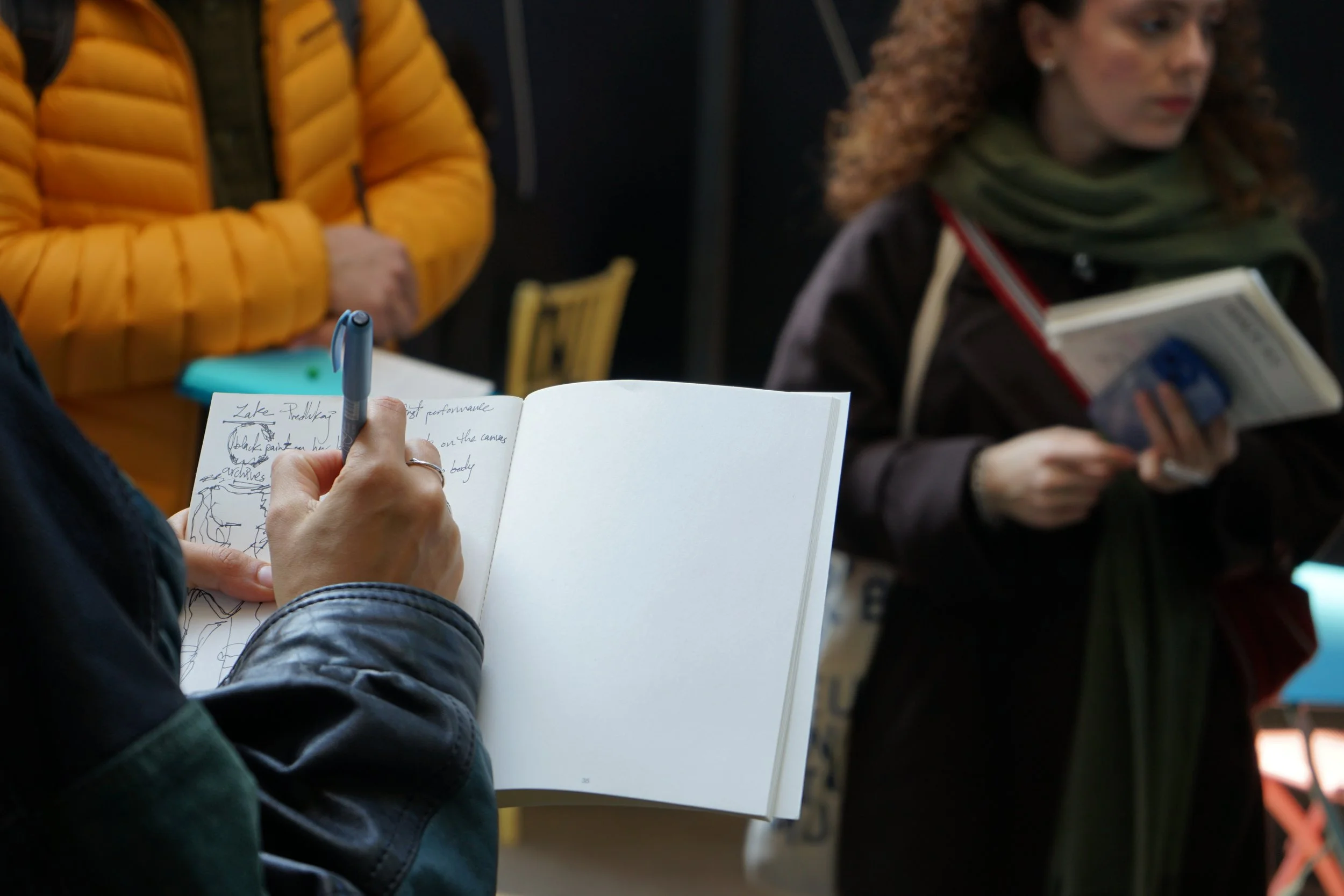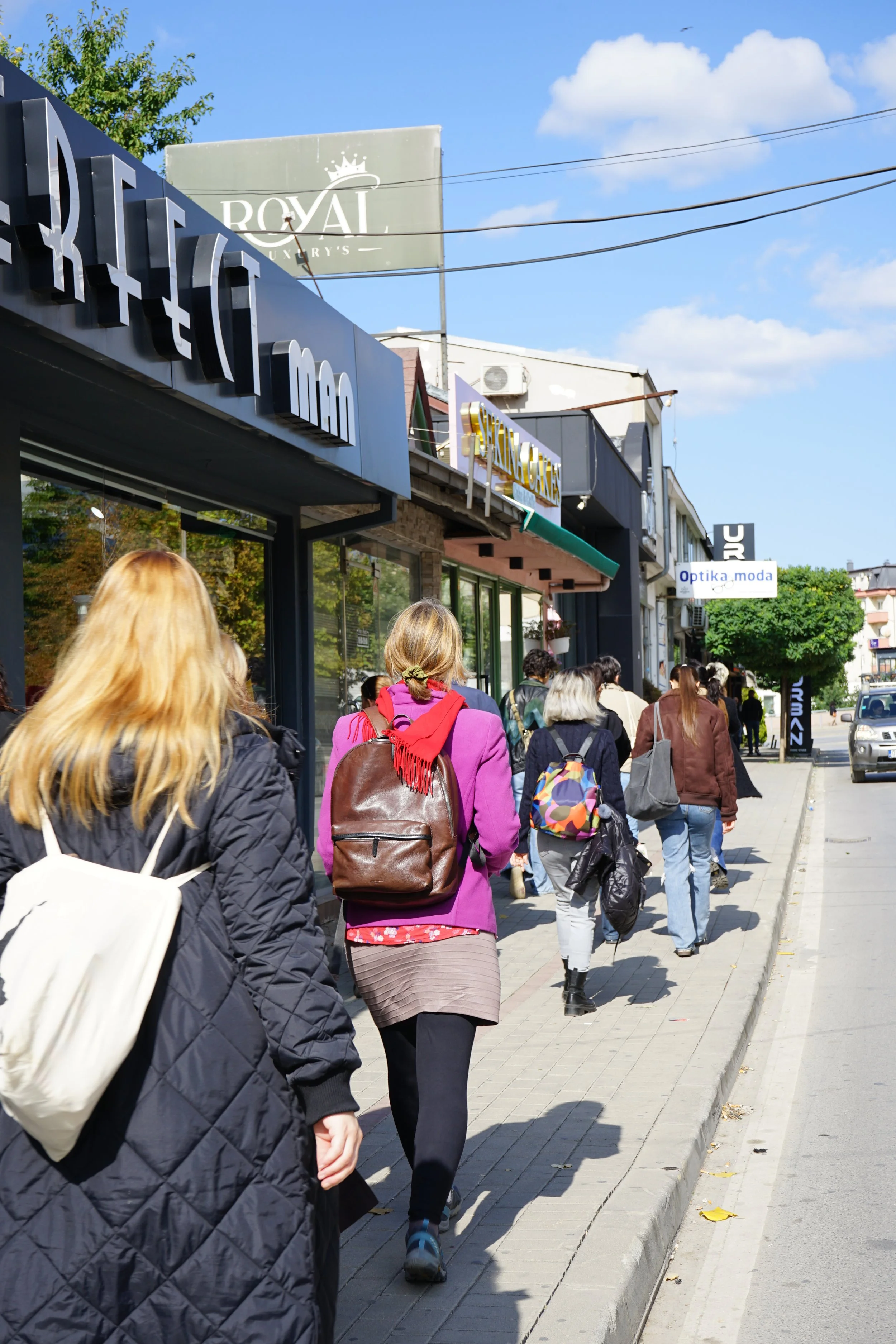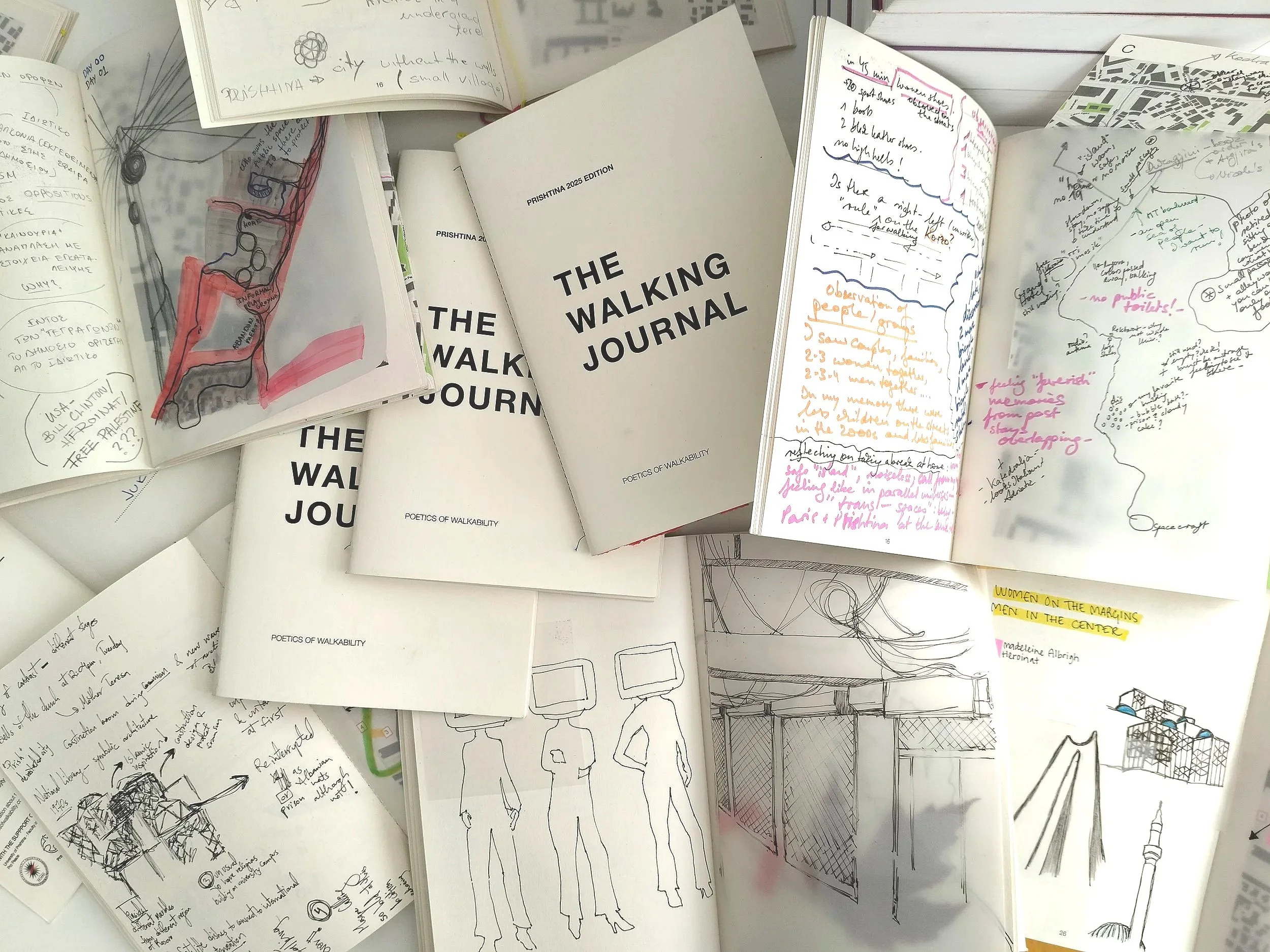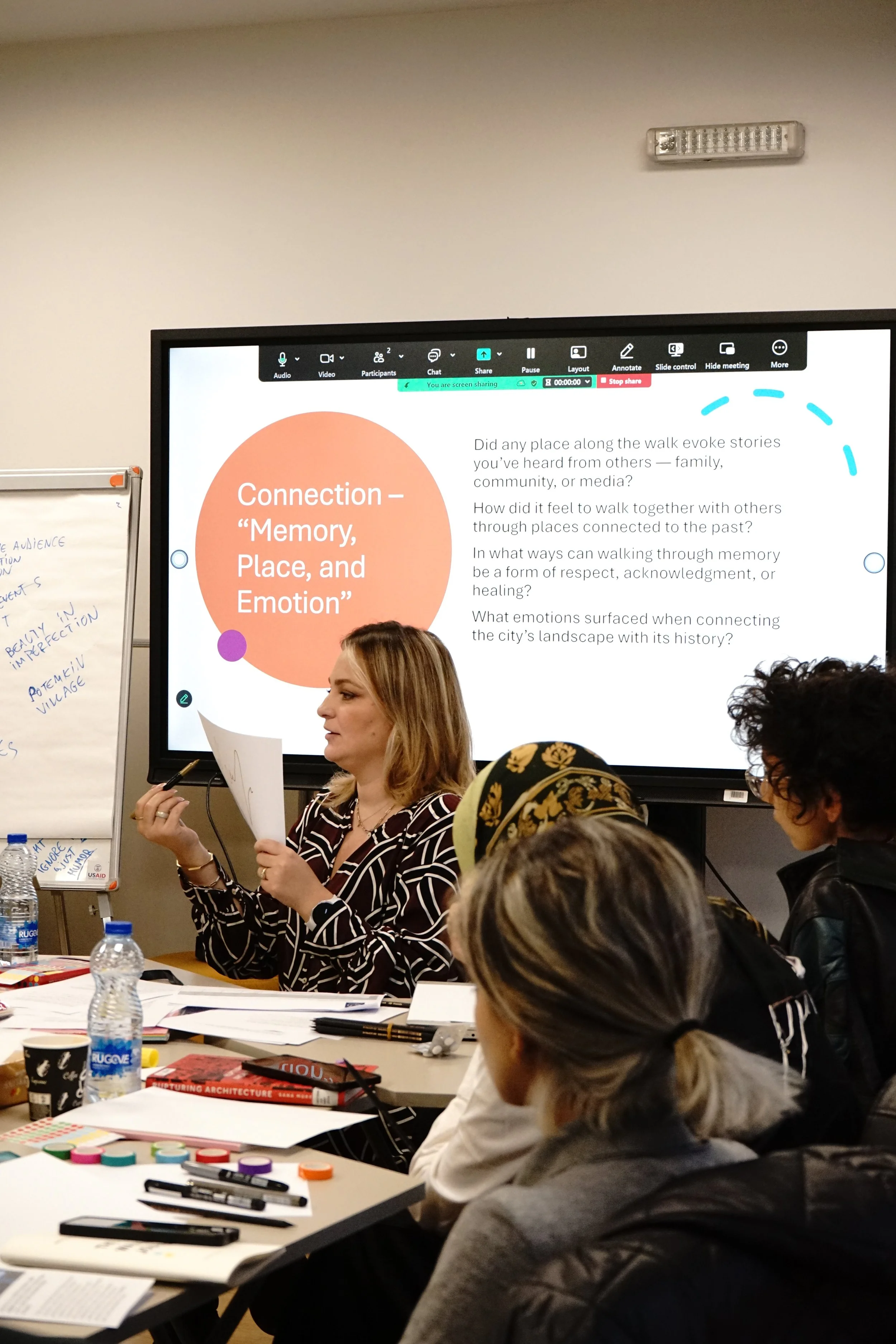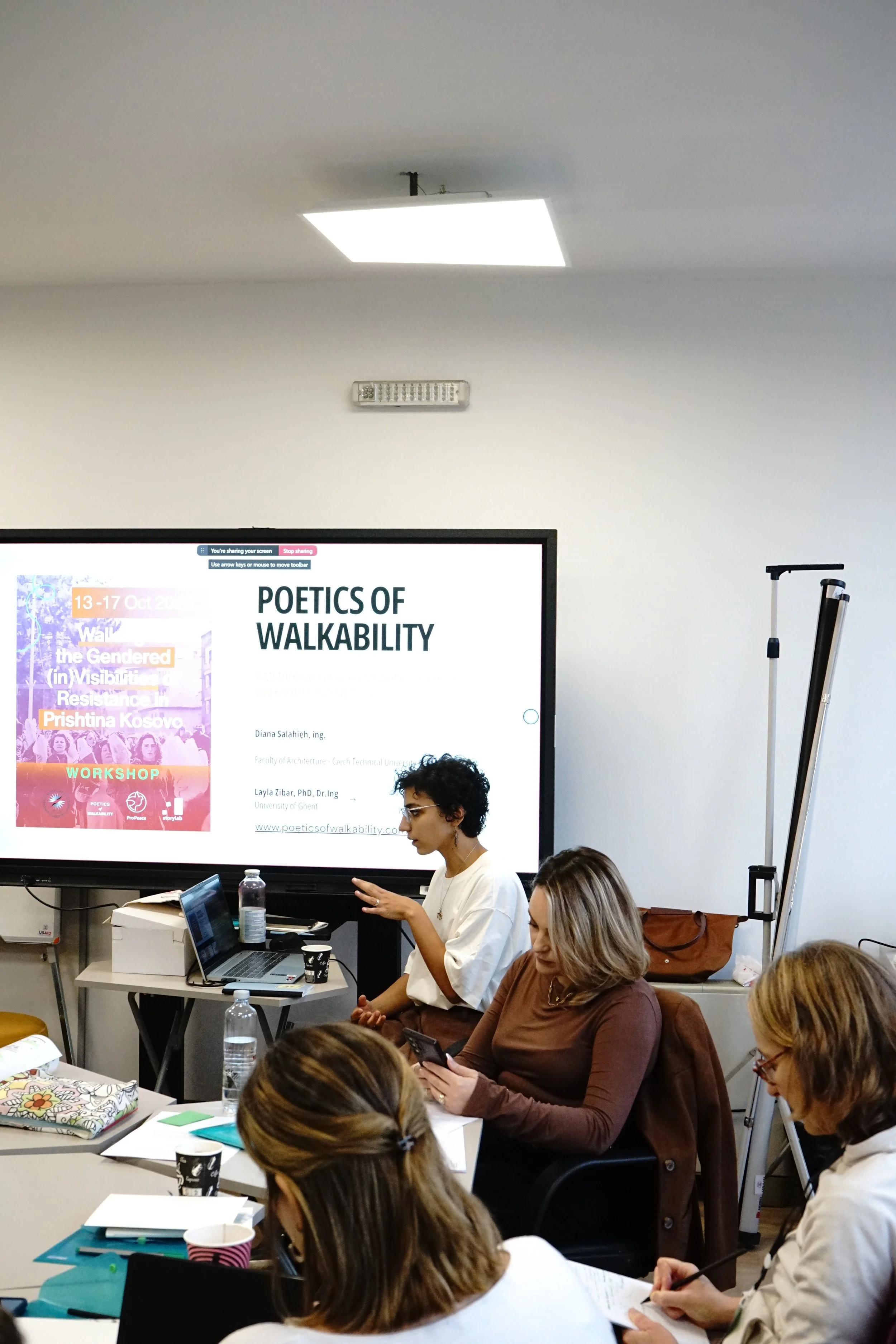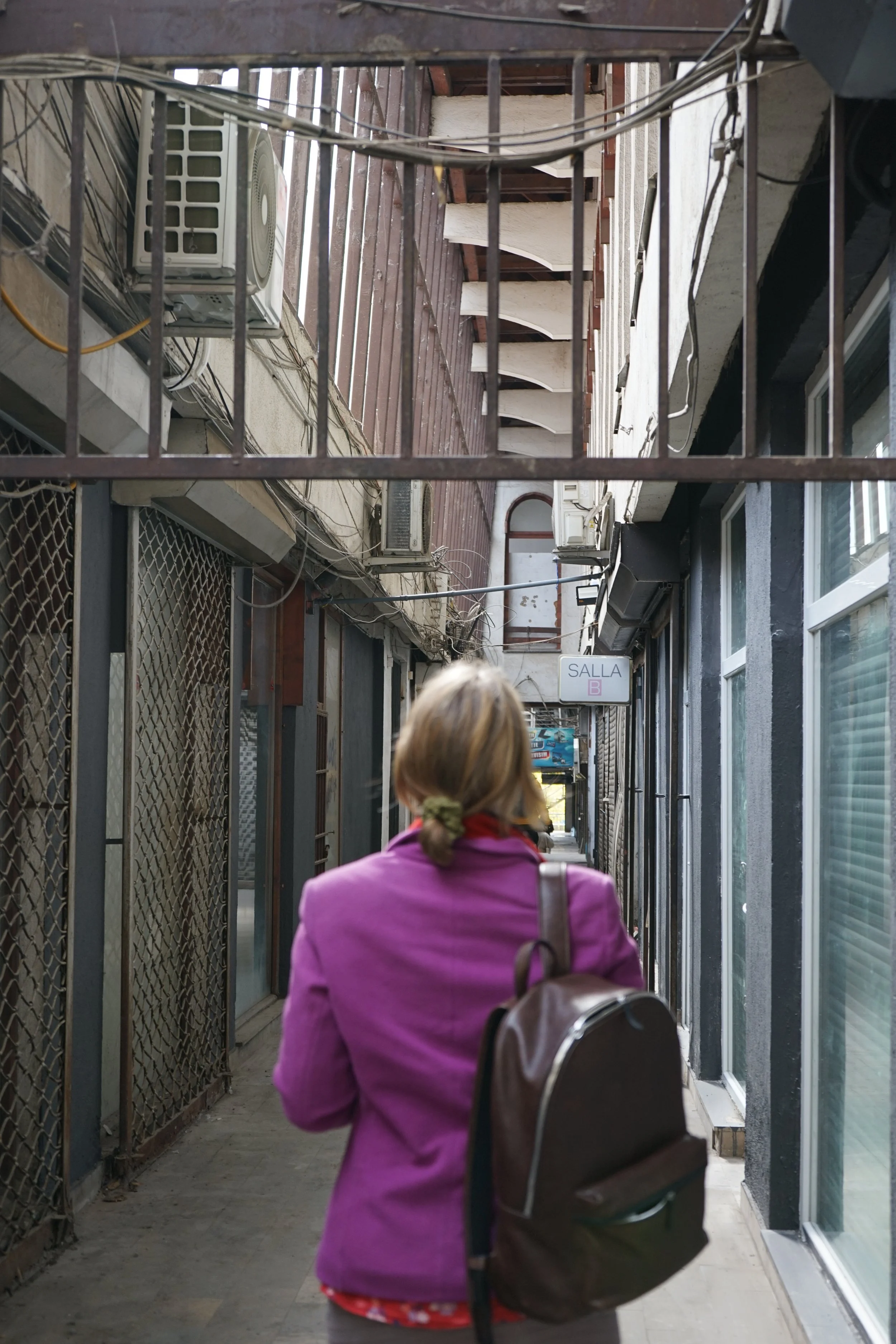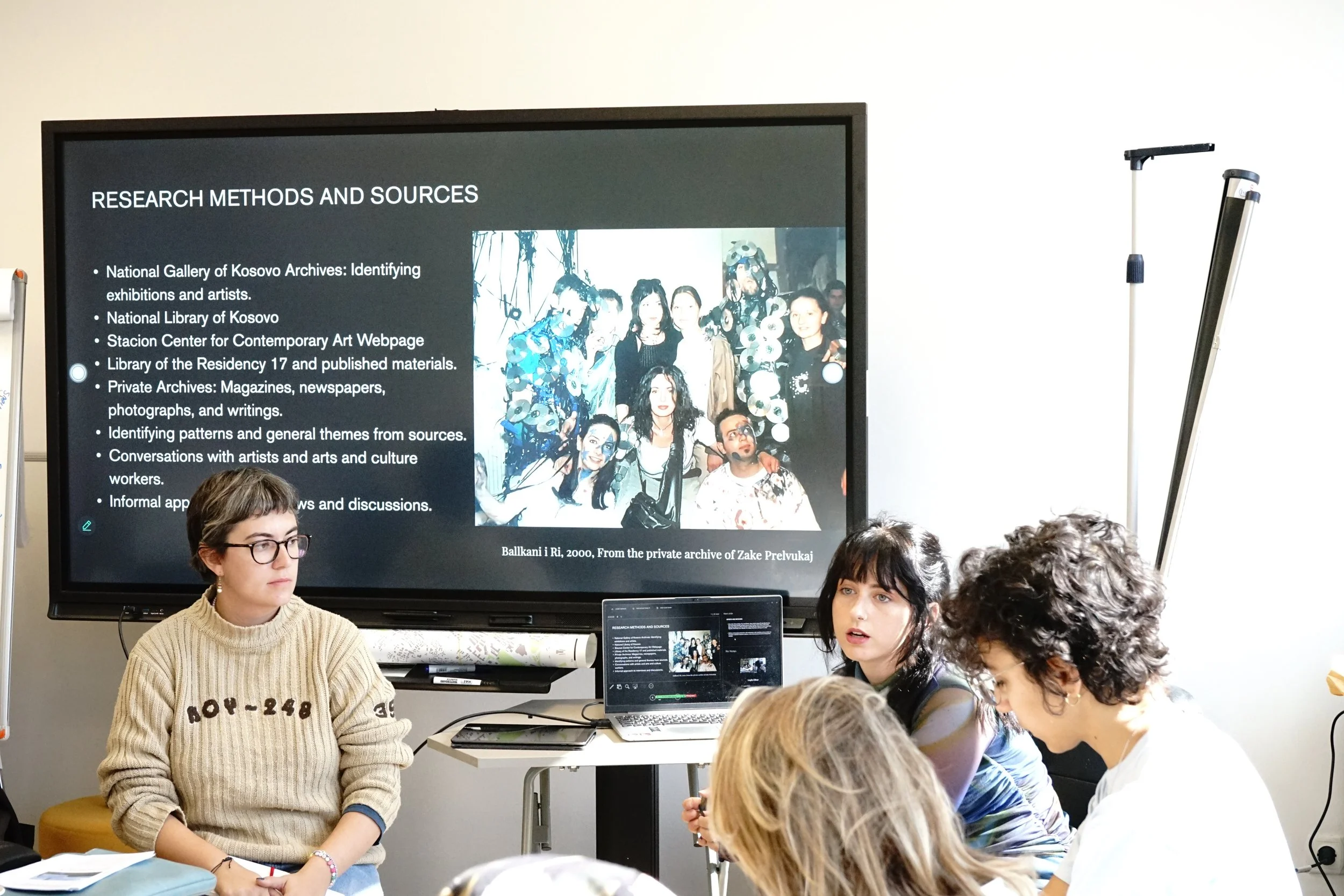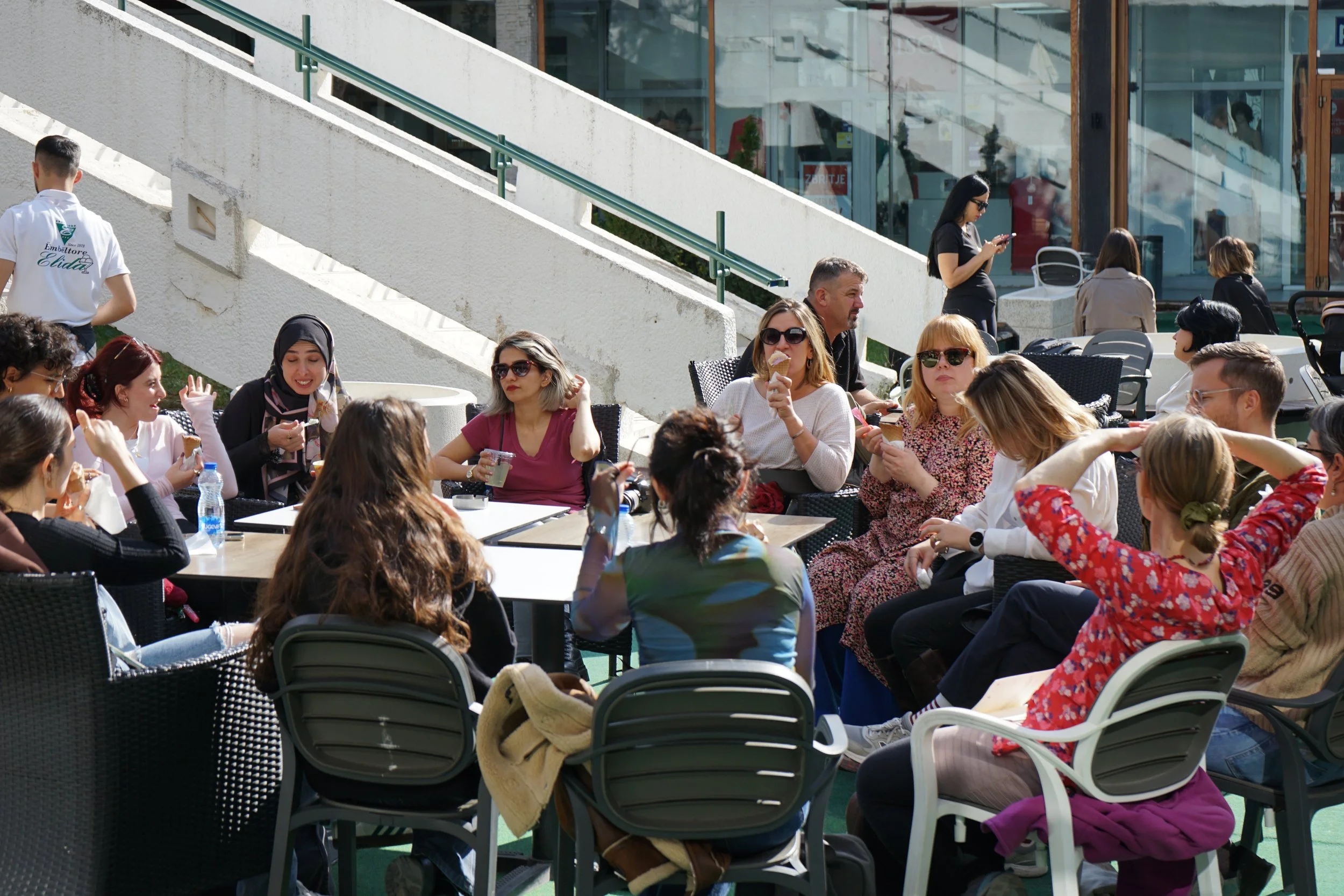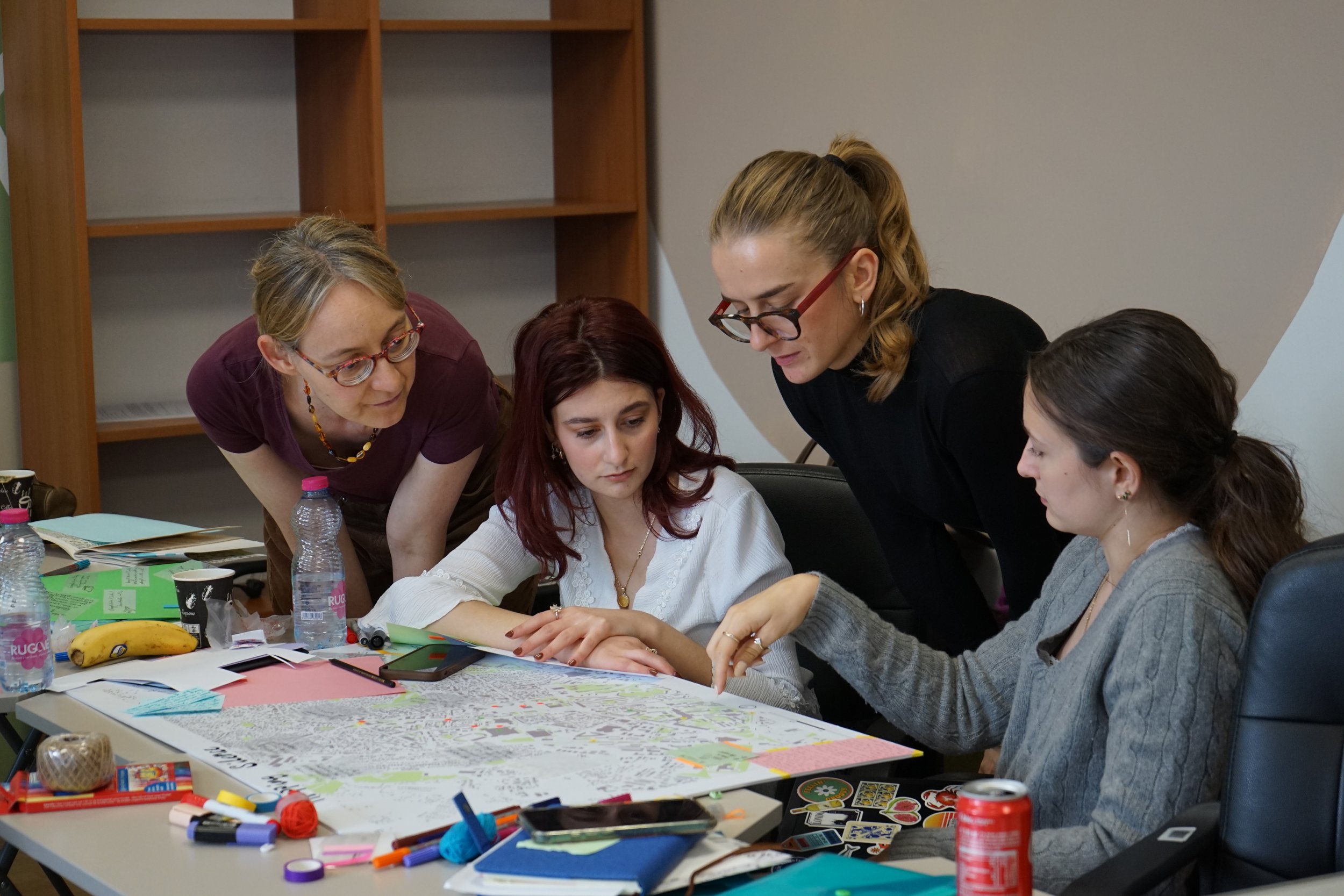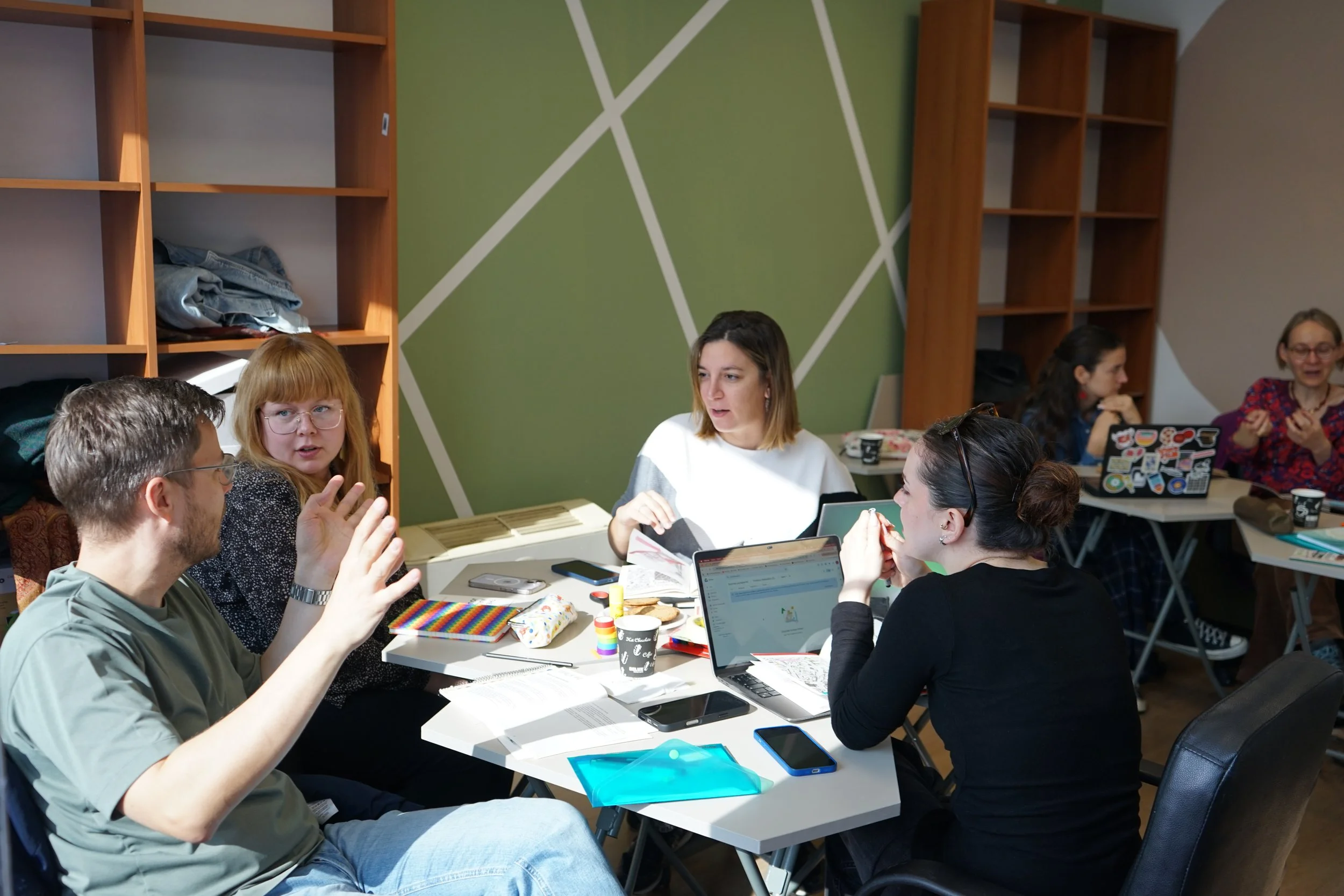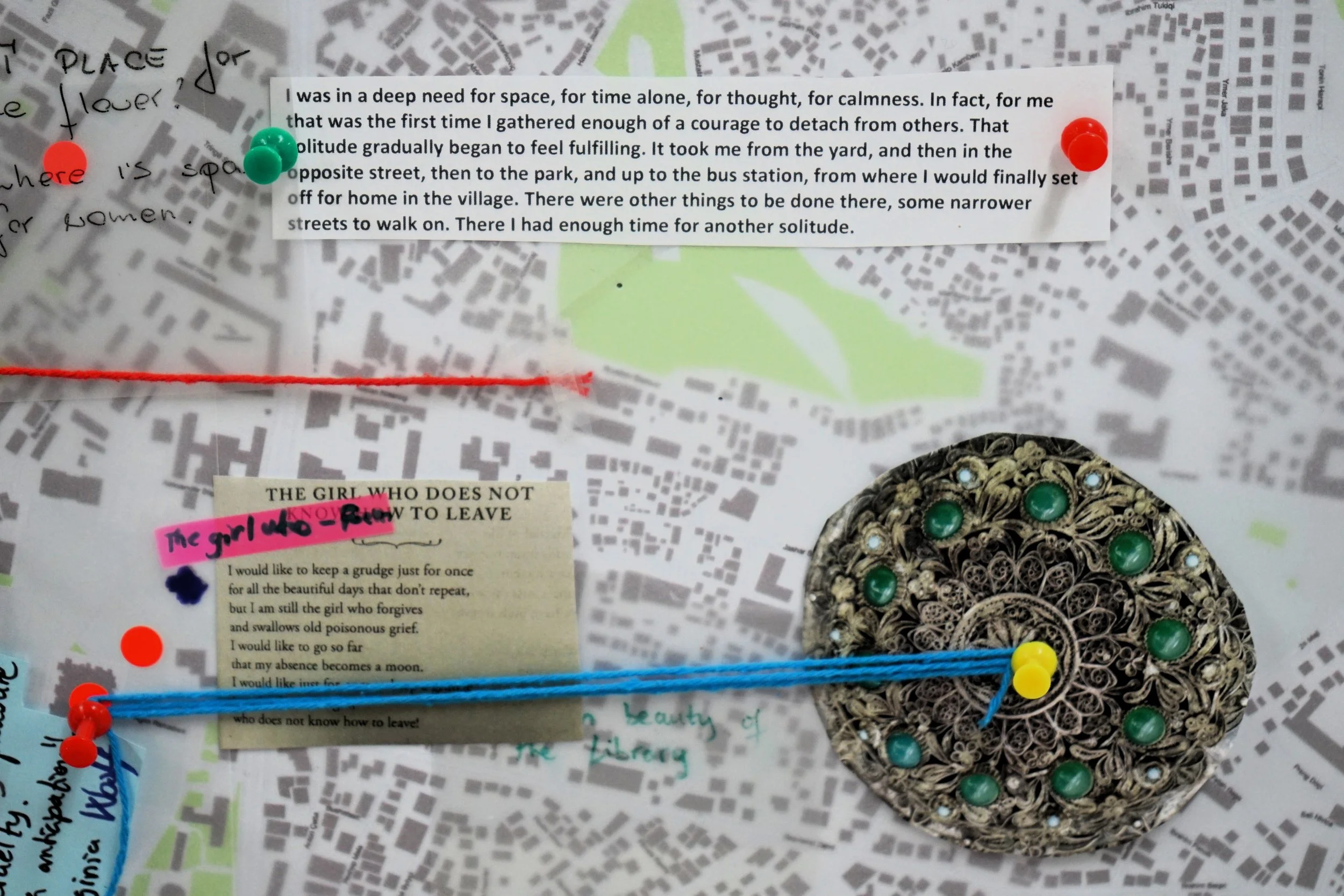Walking the Gendered (in)Visibilities of Resistance in Prishtina, Kosovo
Date: 13-17th of October 2025
Venue: University of Prishtina
Organizing Team:
Prof. Vjollca Krasniqi (University of Prishtina)
Diana Salahieh (Czech Technical University in Prague)
Dr. Layla Zibar (Ghent University)
Vjollca Islami Hajrullahu (Pro Peace)
Korab Krasniqi (Pro Peace)
In collaboration with Artrit Bytyçi (StoryLab)
The five-day interdisciplinary workshop “Walking the Gender (In)visibilities of Resistance in Prishtina” brought together students, scholars, artists, and community activists for an in-depth exploration of walkability through the intersections of gender, space, memory, history, agency, and trauma in the dynamic context of Prishtina. Twenty participants, trainers and guest lecturers from Kosovo, Turkey, Iran, Syria, England, Greece, Poland, Germany, France, and Finland took part.
Participants engaged in lectures, exploratory walks, creative movement, and guided writing sessions that approached walkability as both a method and a lens for uncovering suppressed or overlooked memories of gendered resistance and activism. Adopting this framework, participants examined how shared, contested, and gendered memories are made visible—or remain invisible—within Prishtina's everyday footpaths and public spaces.
Building on these explorations, the workshop culminated in three group projects that produced creative multimedia maps integrating personal reflections and collective spatial experiences and memories. These works illustrated how walking and remembering together can nurture practices of presence, collective resistance, and care amid Prishtina’s post-conflict and continuously transforming urban landscape.
Group Projects and Outcomes
The final projects culminated in an embodied exploration of walkability, memory, and urban transformation through collage-based maps. Composed from participants’ individual and collaborative pieces (creative writing and poetry, photography, sketching, and voice recordings), these multimodal cartographies traced the textures of memory, emotion, and sensory observation gathered during the walks and wove them into shared narratives that reimagine how Prishtina is seen, sensed, and remembered today.
The three project titles were:
1- Mapping Silence - developed by Elona, Julia, Ardea, and Emilia
2- The City as Archive - developed by Laureta, Zehra and Marta
3- The City of Duality: Who owns the City? - developed by Soodeh, I., Revekka, Joanna, and Jukka.
By foregrounding walkability and embodied knowledge, participants collectively remembered, wove, and revealed the hidden and gendered memories inscribed in Prishtina’s urban landscape. The workshop also highlighted the value of collaborative, interdisciplinary and experiential methods as a way to disrupt dominant narratives and nurture new imaginaries of peace education and gender development agenda that address post-conflict recovery, justice, and healing.
The workshop was supported by Pro Peace Kosovo and University of Prishtina.
-
The city of Prishtina, the capital of Kosovo, is a complex and layered urban environment moulded by the country's turbulent history. The urban landscape bears the scars of conflict and displacement (Boussauw, 2012). In the post-conflict years, Prishtina's urban spaces have undergone major transformations marked by nation-building and patriarchal heroism, and by efforts to recalibrate the public image of who has the right to claim the city and whose history and memory count, rendering various stories visible (Krasniqi, 2025). Yet walking with those who have lived these deep transformations surfaces micro-histories of labour, resistance, and trauma, where slow memory confronts past violence and reproduces the image of space for those who follow the invisible footpaths in everyday life. Alternative memories matter (Palmberger, 2019, ProPeace Kosovo, 2022), and the embodied walkability experiences of places in these contested spaces, where ghosts of past memories were emplaced (Stevenson, 2014), allow once-brushed-away voices to resurface. Walking, therefore, has the capacity to collectively contest, reorder, and disorder memories (Edensor, 2005), revealing complexities of power, gender, and the struggle for inclusion in memorialisation and shaping the future of the post-conflict city.
This workshop builds on years of work by academics, activists, and mnemonic communities in the city of Prishtina, who have been relentlessly working to influence existing efforts for the post-conflict healing process to become inclusive for all unvoiced stories. It aims to ensure the continuation of these efforts by embracing walkability as a lens and method to subvert invisibility processes. Working with the concept of Slow Memory (Wüstenberg, 2023), participants will cultivate practices of presence in contexts of uneven change, unearthing suppressed or forgotten memories of gendered resistance and activism that are entangled with the footpaths connecting individual experiences to collective memory. Participants will investigate walkability against a backdrop of latent violence and slow urban transformation, adopting methods that intentionally decelerate research to capture deep-rooted, often (in)visible narratives embedded within the city.
Over five days, participants will engage in lectures, exploratory walks, creative movement, and guided writing studios. Using the Poetics of Walkability framework (Embodiment, Narrative, Representation), they will develop collaborative maps that spatialize shared, contested, and gendered memories across Prishtina’s urban landscape. This workshop offers a platform for experimentation in interdisciplinary research and recentering walkability in memory policy, peace education and gender development agenda that address post-conflict recovery, justice, and healing. Developing this method and making it available for all ensures the sustainability and durability of these efforts. Therefore, this workshop aims to attract all who are interested in methods of voicing the other: students, scholars, practitioners, and community activists. It aims to include diverse complementary fields of studies that dig into the matter — social sciences, humanities, architecture, urban studies, (human) geography, political science and more — for an in-depth exploration of walkability through the intersections of gender, space, memory, history, agency and trauma, within the dynamic center of Prishtina.
—
Participants are expected to cover their own accommodation and travel expenses.This workshop bears 2 ECTS credits for master and bachelor students.
[2 ECTS = 50 hours - workshop days are about 8hours/day]
This workshop is in-person; virtual participation will not be possible.
Registration deadline extended till 29 September 2025.
Bibliography
Boussauw, K. (2012). Challenges, threats and opportunities in post-conflict urban development in Kosovo. Habitat International, 36(1), 143–151. https://doi.org/10.1016/j.habitatint.2011.06.011
Edensor, T. (2005). The ghosts of industrial ruins: Ordering and disordering memory in excessive space. Environment and Planning D: Society and Space, 23(6), 829–849. https://doi.org/10.1068/d58j
Krasniqi, V. (2025, July 24). Reclaiming public space: Feminist history (re) writing of Southeast Europe. seeFField. https://seeffield.app.uni-regensburg.de/reclaiming-public-space-feminist-history-re-writing-of-southeast-europe/
Palmberger, M. (2019). Why alternative memory and place-making practices in divided cities matter. Space and Polity, 23(2), 243–249. https://doi.org/10.1080/13562576.2019.1637251
ProPeace Kosovo. (2022). Women and Gender In the Last Two Decades of the XX Century in Kosovo. Teaching History from a Gender Perspective. https://dwp-balkan.org/wp-content/uploads/2023/04/ENG-Women-and-Gender-manual.pdf
Murrani, S. (2024). Rupturing architecture: Spatial practices of refuge in response to war and violence in Iraq, 2003–2023. Routledge.
Salahieh, D., & Zibar, L. (2025). Tracing Walkability Through Disruption Assemblages in Aleppo’s (Post‐)Conflict Historic Core. Urban Planning, 10. https://doi.org/10.17645/up.9605
Stevenson, A. (2014). We came here to remember: Using participatory sensory ethnography to explore memory as emplaced, embodied practice. Qualitative Research in Psychology, 11(4), 335–349. https://doi.org/10.1080/14780887.2014.908990
Wüstenberg, J. (2023). Towards a slow memory studies. In B. A. Kaplan (Ed.), Critical memory studies: New approaches. Bloomsbury Academic
